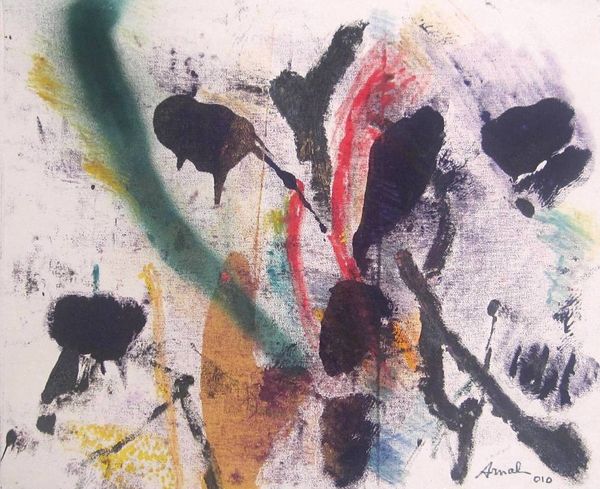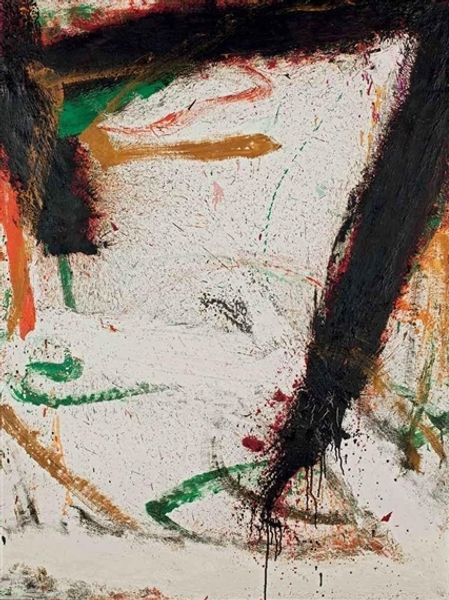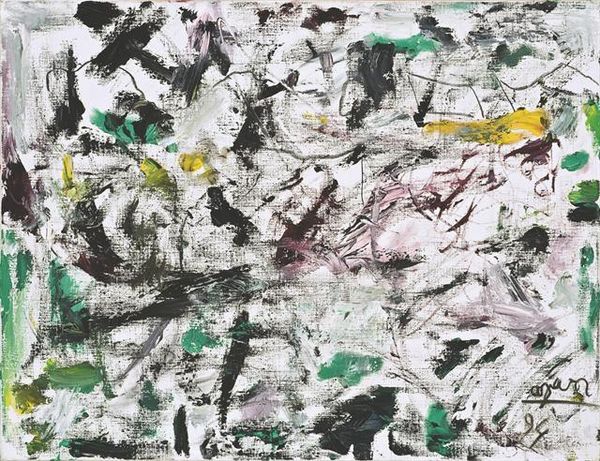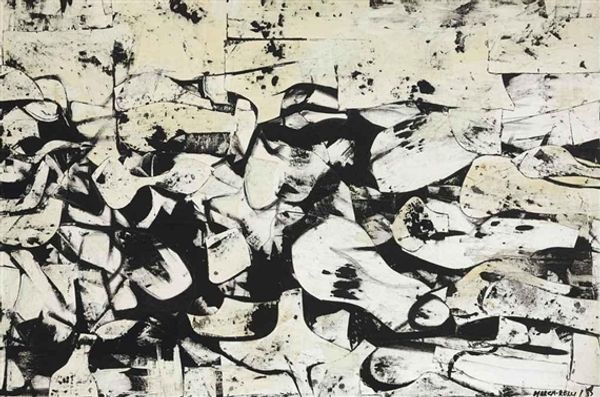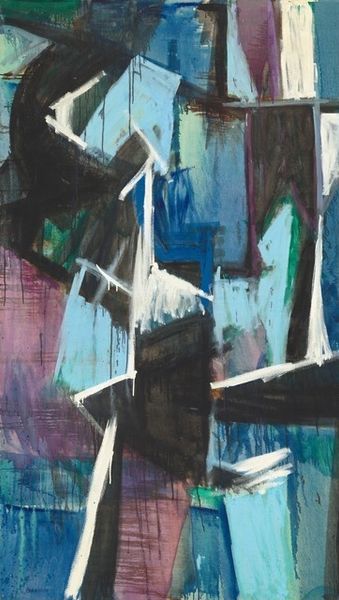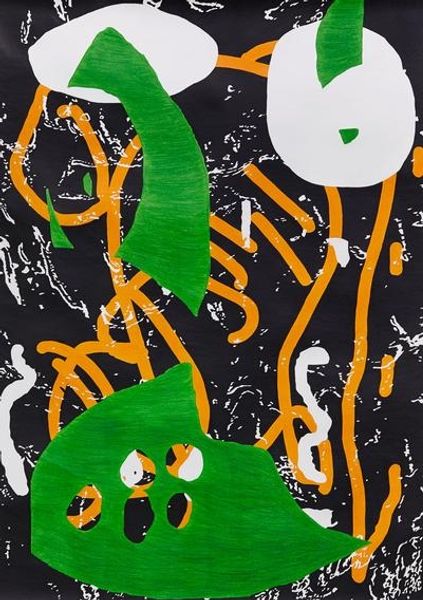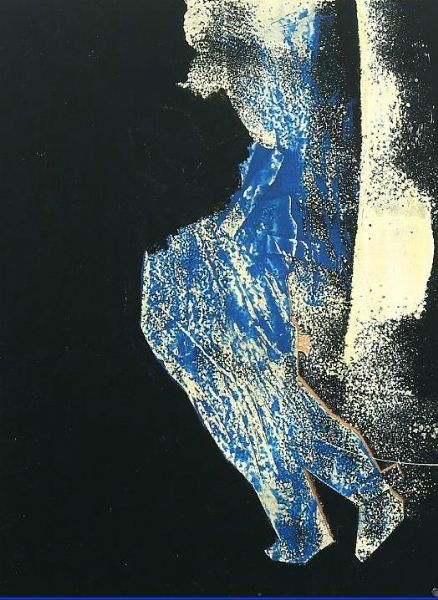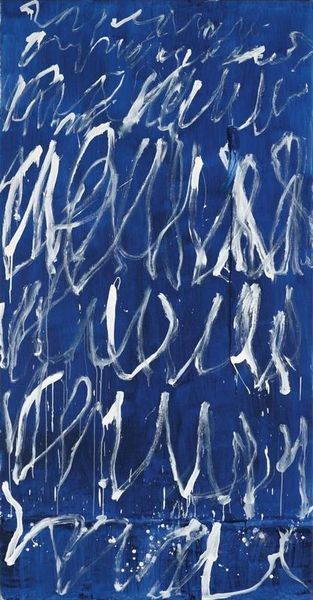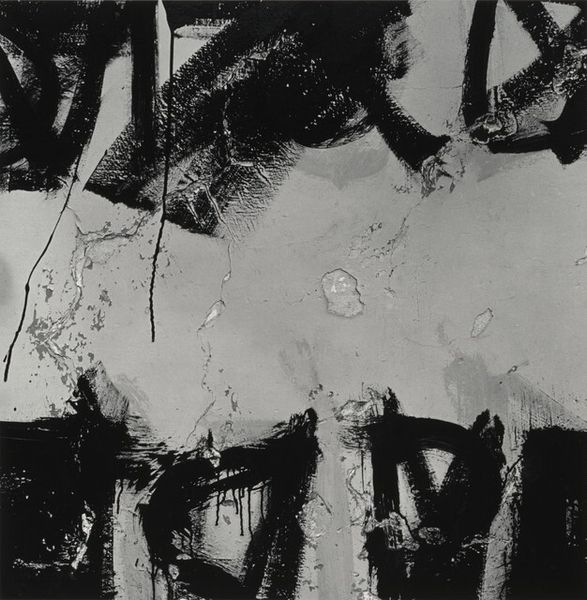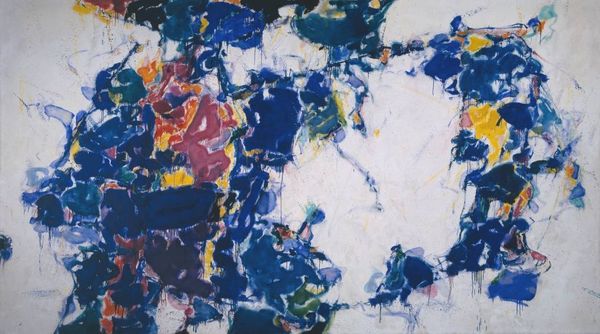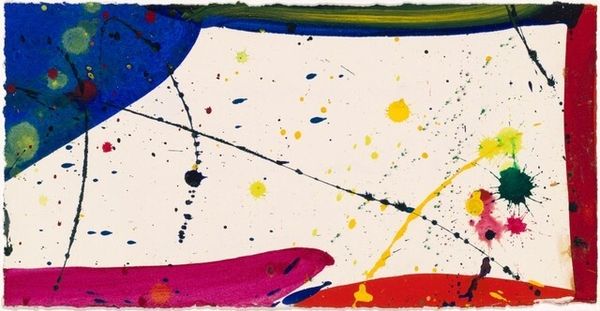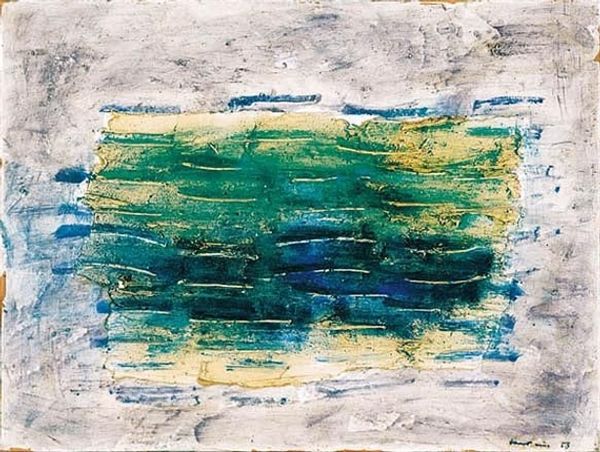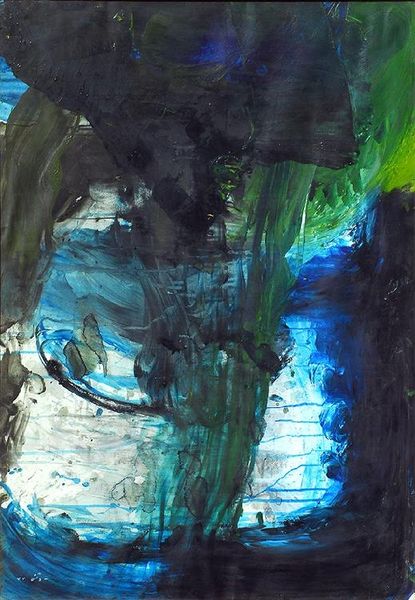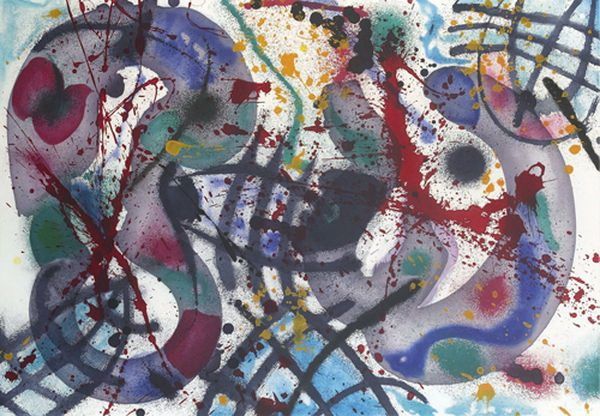
acrylic-paint
#
abstract-expressionism
#
abstract expressionism
#
acrylic-paint
#
acrylic on canvas
#
abstraction
#
line
Copyright: Norman Bluhm,Fair Use
Curator: Norman Bluhm's "Frozen Summer," completed in 1966, is an acrylic on canvas Abstract Expressionist work of considerable size, isn't it? A large triptych. Editor: It hits you with a raw energy, doesn't it? The forceful brushstrokes—they feel almost violent against the stark white background. It feels chaotic but in a deliberate, controlled way. Curator: Precisely. The interplay of these forceful lines – black, primarily, with interjections of green, blue and the occasional flash of red – establishes a powerful sense of dynamism. Note the intentional drips. Editor: That rawness—the drips and splatters, those bold, dark lines boxing in that bright white. Doesn't it remind you of landscapes after some devastating natural event, like a flood or maybe an avalanche? The “frozen summer” suddenly makes chilling sense. Curator: It's fascinating how Bluhm utilizes the triptych format. The panel divisions segment the visual space, inviting the eye to dissect the composition into discrete yet interconnected elements. He controls how your eye jumps, emphasizing certain painterly gestures. Editor: And I can't help but see primal symbolism in that heavy, almost enclosing linework, trapping—protecting?—the blank center. There's an almost womb-like feeling in the negative space, set against the chaotic marks surrounding it. An egg? A portal? Curator: An intriguing observation. I am especially struck by the structural deployment of white and its active function rather than remaining merely an absence of color. Editor: In fact, now I think about the title; perhaps 'frozen' is an evocation of preservation – Bluhm capturing summer and safeguarding the energy and chaos inherent to that season? It feels like more than an abstraction to me. Curator: Ultimately, the beauty of Bluhm’s work is found precisely in this kind of dynamic and diverse reading; “Frozen Summer” succeeds in provoking contemplation. Editor: Indeed. And perhaps prompting us to seek deeper meanings, both formal and symbolic, within abstraction itself. Thank you for your insight.
Comments
No comments
Be the first to comment and join the conversation on the ultimate creative platform.
